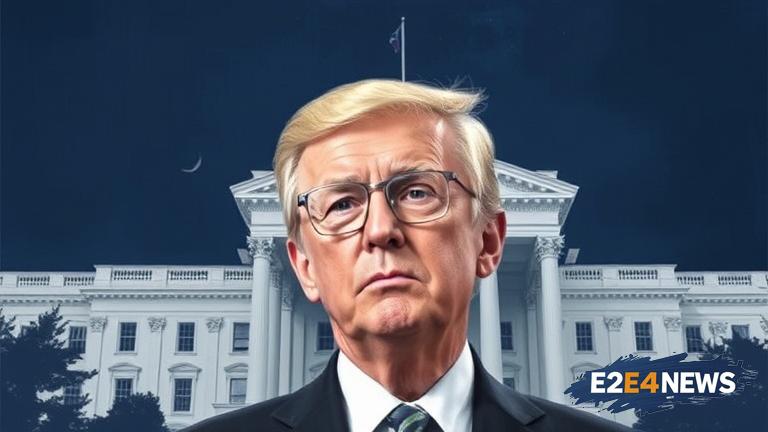Senator Chuck Grassley, a Republican from Iowa, has taken a significant step by placing a hold on President Trump’s Treasury nominees. This move is seen as a response to the administration’s lack of transparency and accountability, particularly with regards to the Treasury Department. Grassley’s decision is likely to have significant implications for the Trump administration’s economic policies and agenda. The senator’s concerns stem from the administration’s handling of certain issues, including the use of national security waivers to bypass congressional review of foreign investments. Grassley has been a vocal advocate for greater transparency and oversight within the administration, and his actions are seen as a reflection of his commitment to these principles. The hold on the Treasury nominees is expected to delay their confirmation process, potentially for several weeks or even months. This could have significant consequences for the administration’s ability to implement its economic policies, including tax reform and trade agreements. The Treasury Department plays a critical role in shaping the country’s economic agenda, and the delay in confirming the nominees could hinder the administration’s progress. Grassley’s decision has been met with mixed reactions from his colleagues, with some expressing support for his stance on transparency and others criticizing his actions as an obstructionist tactic. The senator’s move is also seen as a reflection of the growing tensions between the administration and Congress, particularly with regards to issues of oversight and accountability. The use of national security waivers has been a point of contention between the administration and Congress, with lawmakers arguing that the waivers are being used to circumvent congressional review. Grassley’s hold on the Treasury nominees is likely to escalate these tensions, potentially leading to further conflicts between the administration and Congress. The senator’s actions are also seen as a test of the administration’s commitment to transparency and accountability, with many lawmakers watching closely to see how the administration responds to Grassley’s concerns. The Treasury Department has been at the center of several high-profile controversies in recent months, including the use of national security waivers and the handling of foreign investments. Grassley’s decision to place a hold on the Treasury nominees is seen as a response to these controversies, and a reflection of his commitment to greater transparency and oversight. The senator’s move is likely to have significant implications for the administration’s economic policies, including its plans for tax reform and trade agreements. The delay in confirming the Treasury nominees could hinder the administration’s progress on these issues, potentially leading to significant consequences for the country’s economy. The administration has been criticized for its lack of transparency and accountability, particularly with regards to the Treasury Department. Grassley’s actions are seen as a reflection of his commitment to addressing these concerns, and ensuring that the administration is held accountable for its actions. The senator’s decision to place a hold on the Treasury nominees is a significant development, and one that is likely to have far-reaching consequences for the administration and Congress. The use of national security waivers has been a point of contention between the administration and Congress, with lawmakers arguing that the waivers are being used to circumvent congressional review. Grassley’s move is seen as a response to these concerns, and a reflection of his commitment to greater transparency and oversight. The Treasury Department plays a critical role in shaping the country’s economic agenda, and the delay in confirming the nominees could have significant consequences for the administration’s ability to implement its economic policies.





